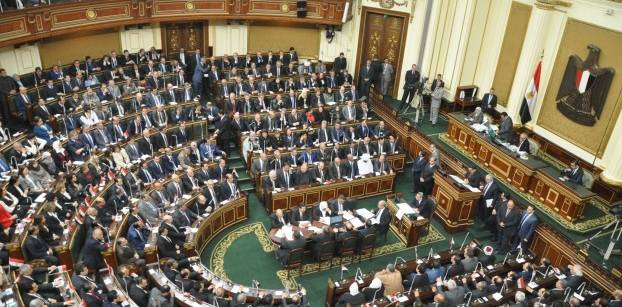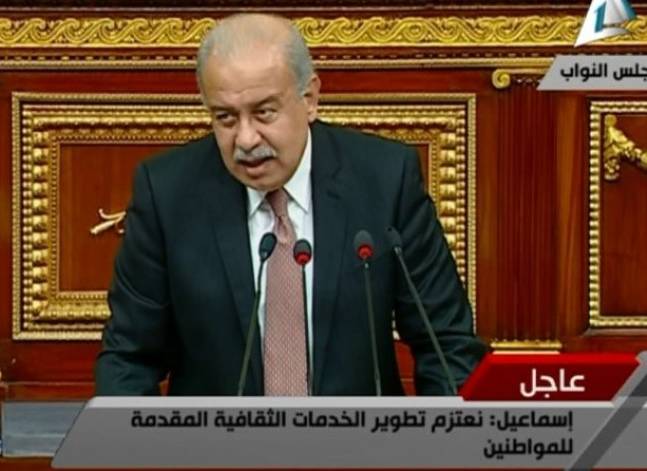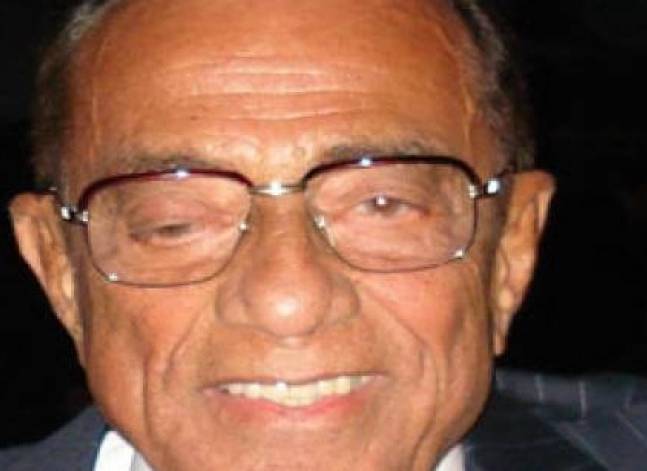Latest NEWS
- Aswat Masriya, the last word
- Roundup of Egypt's press headlines on March 15, 2017
- Roundup of Egypt's press headlines on March 14, 2017
- Former Egyptian President Hosni Mubarak to be released: lawyer
- Roundup of Egypt's press headlines on March 13, 2017
- Egypt's capital set to grow by half a million in 2017
- Egypt's wheat reserves to double with start of harvest -supply min
- Roundup of Egypt's press headlines on March 12, 2017
Egypt parliament approves 'in principle' transitional justice bill
House of Representatives members take oath-of-office during first session, on Jan. 10, 2016. ASWAT MASRIYA
CAIRO, Aug 24 (Aswat Masriya) – The legislative and constitutional committee of Egypt's House of Representatives approved "in principle" on Wednesday the transitional justice draft law required by the country's constitution more than five years after the January 2011 uprising.
Article 241 of Egypt's 2014 constitution states: "In its first legislative term after the enforcement of this Constitution, the House of Representatives shall issue a law on transitional justice that ensures revealing the truth, accountability, proposing frameworks for national reconciliation, and compensating victims, in accordance with international standards."
More than 100 parliament members along with the legislative and constitutional committee embarked on presenting a transitional justice daft law as Egypt's cabinet was late to send one to parliament as dictated by the constitution.
Parliament Speaker Ali Abdel Aal asked the cabinet to swiftly send its transitional justice draft law, in which case both drafts would be discussed by the parliament to settle on articles that garner the agreement of the majority of members.
Head of the parliament's Human Rights committee Mohamed Anwar al-Sadat said that the public conception of "reconciliation" is associated with the now-banned Muslim Brotherhood although Christians who were affected by the Maspero events of 2011 also need "national reconciliation".
Since the 18-day uprising that commenced on Jan. 25 and ended with the toppling of President Hosni Mubarak, several clashes and events that involved killings and injuries have marred Egyptian history.
The tragic Maspero clashes of October 2011 that killed 27 people mostly Coptic Christians, the Mohamed Mahmoud clashes a month later and the forcible dispersal of Rabaa al-Adaweya and Nahda sit-ins are just a few examples of more than five years of political and societal unrest in Egypt.
Human rights groups have long been calling for an all-encompassing transitional justice process that would address past atrocities and violations and unveil the truth behind several unresolved incidents.
Human rights defender and head of the Arabic Network for Human Rights Information (ANHRI) Gamal Eid told Aswat Masriya that embarking on a process of transitional justice would imply revising court cases, forming new reconciliation agreements and addressing the crimes of the current regime as well as former ones.
"There are four pillars to transitional justice; confessing to the crime, accountability, compensating victims and setting a framework to avoid the recurrence of violations," Eid said.
However, Eid said that he has no faith in the draft law because of the absence of a political will to prosecute those who committed atrocities, including persons from the current regime.
Eid added that the last he had heard about "transitional justice" was during a meeting with former Interim President Adly Mansour who assumed his role after Mursi's ouster.
"There was a clear direction towards blaming the Muslim Brotherhood for everything while not considering all other crimes as well committed under former regimes," Eid said of his meeting with Mansour.
Egyptian initiative for Personal Rights lawyer Hoda Nasralla held the opinion that the transitional justice draft law is "just another constitutional obligation" like the church-building law currently being discussed.
"I do not think that the law is meant to reconcile with the Muslim Brotherhood," Nasralla said, "However, this is an important legislation because whether reconciliation happens now or later, the provisions of the law will act as the framework within which reconciliation will take place."
A ministry of transitional justice was established following the military ouster of President Mohamed Mursi in July 2013 only to be abolished in Prime Minister Sherif Ismail's cabinet last September.
The Ministry of Legal and Parliamentary Affairs currently headed by Magdy al-Agaty is the authority that is supposed to deal with matters of transitional justice.














